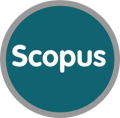Pesantren as a Halal Center Institution Towards Religious Tourism Development
DOI:
https://doi.org/10.15575/ijhar.v3i1.10768Keywords:
halal pesantren, religious tourismAbstract
The pesantren institutions have never lost interest from the young generation. An old pesantren continues the process, and new pesantren keep appearing. The education system and the institutions for pesantren are growing rapidly, as supported by facilities, infrastructure, and curriculum. They are adapted constanly according to the times. The halal center discourse is developing in the global world. It has made the continue of pesantren to offer applicative ideas. Then the institutions can become the promising center for religious tourism. This study used qualitative literature study and interviews to collect data that related to religious tourism in pesantren. It can be concluded that there are five potentials for developing religious tourism and halal centers in pesantren; such as the intrinsic value of the pesantren, the pattern of life, the environment and the surrounding community, the sacredness, and the spiritual atmosphere; and pesantren religious tourism aspect.
References
Alhamuddin, & Hamdani, F. F. R. S. (2018). Hidden Curriculum: Polarisasi Pesantren dalam Upaya Membentuk Kesalehan Individu Dan Sosial (Case Study Pondok Modern Darussalam Gontor Ponorogo). AL-MURABBI: Jurnal Studi Kependidikan Dan Keislaman, 5(1), 50-65. http://ejournal.kopertais4.or.id/mataraman/index.php/murabbi/article/view/3351
Ambary, H. M. (2001). Menemukan Peradaban: Jejak Arkeologis dan Historis Islam Indonesia (2nd ed.). Jakarta: Logos Wacana Ilmu.
Andriani, D., Khalikal, K. Akbar, Aqmarina, L., & Nurhayati, T. (2015). KAJIAN PENGEMBANGAN WISATA SYARIAH Susunan Anggota Kelompok Kerja: Laporan Akhir Kajian Pengembangan Wisata Syariah.
Badudu, J. S., & Zain, S. M. (2001). Kamus umum bahasa indonesia. Jakarta: Pustaka Sinar Harapan.
Ceswell, J. W. (2014). Research design pendekatan metode kualitatif kuantitatif dan campuran Ed.4. Yogyakarta: Pustaka Pelajar.
Chairilsyah, D. (2019). Teaching Queuing Culture In Early Childhood Daviq. Jurnal Educhild (Pendidikan & Sosial), 8(2), 53-58.
Creswell, J. W. (2009). Research Design: Qualitative, Quantitative, and Mixed Methods Approaches. In US: Sage Publication. https://doi.org/10.1080/14675980902922143
Dahlan, A. A. (1997). Ensiklopedi Hukum Islam. Jakarta: PT. Ichtiar Baru Van Hoeve.
Dhofier, Z. (2011). Tradisi Pesantren: Studi tentang Pandangan Hidup Kiyai. Jakarta: LP3ES.
Ditpdpontren. (2018). Pangkalan Data Pendidikan Diniya dan Pondok Pesantren Kementerian Agama Republik Indonesia. https://ditpdpontren.kemenag.go.id/pdpp/about
Herdiansyah, H., Sukmana, H., & Lestarini, R. (2018). Eco-Pesantren as A Basic Forming of Environmental Moral and Theology. Kalam, 12(2), 303-326. https://doi.org/10.24042/klm.v12i2.2834
Hoi, H. (2020). Bringing the Hidden Beauties and Culture of the Japanese Into Softskill Classes. International Journal of Advanced Research in Engineering and Technology (IJARET), 1(8), 1-6. https://doi.org/10.34218/IJARET.11.8.2020.001
Jabali, F., & Jamhari. (2002). IAIN dan Modernisasi Islam di Indonesia. Logos Wacana Ilmu.
Karim, A. M. (2017). Pesantren sebagai Pusat Wisata Religi. In A. D. Hendriawan, D. M. Darmawan, & I. Fitriyana (Eds.), Pesona Wisata di Tanah Lebak. Humas Pemda.
Karim, A. M. (2020). Hasil Interview: Pesantren as Halal Centers and Religious Tourism, 30 November 2020
Madjid, N. (1992). Bilik-Bilik Pesantren Sebuah Potret Perjalanan. Jakarta: Paramadina.
Masqon, D. (2014). Dynamic of Pondok Pesantren As Indegenous. Edukasi, 12.
Purnama, T. S. (2016). HUT 198 Lebak: Menjadi Seribu Madrasah Berkarakter. Lebak: Humas Pemda.
Qomaro, G. W. (2018). Urgensi Partisipasi Pesantren sebagai Pusat Edukasi dan Moderasi Islam dalam Percepatan Pariwisata Halal di Indonesia. Proceedings of Annual Conference for Muslim Scholars, April, 445-465. http://proceedings.kopertais4.or.id/index.php/ancoms/article/view/149
Satriana, E. D., & Faridah, H. D. (2018). Halal Tourism: Development, Chance and Challenge. Journal of Halal Product and Research, 1(2), 32. https://doi.org/10.20473/jhpr.vol.1-issue.2.32-43
Septiadi, M. A., Joharudin, A., Lestari, N. G., Fajri, R. R., & Khendra, M. (2020). Halal Politics Role in the Fight against Vote-Buying and Hoaxes. Indonesian Journal of Halal Research, 2(2), 33-39. https://doi.org/10.15575/ijhar.v2i2.8981
Sofyan, R. (2012). Prospek Bisnis Pariwisata Syariah. Republika.
Summa, M. A. (2017). Syi'ar Lebak Dalam Wisata Syar'i. In A. D. Hendriawan, D. M. Darmawan, & I. Fitriyana (Eds.), Pesona Wisata di Tanah Lebak. Humas Pemda.
Tan, C. (2012). Islamic Education and Indoctrination: The Case in Indonesia. New York: Routledge.
Widhasti, G. B., Damayanti, C., & Sardjono, H. S. (2017). Diplomasi Publik Pemerintah Republik Indonesia Melalui Pariwisata Halal. Jurnal Solidaritas: Ilmu-Ilmu Sosial, 1(1), 8.
Zarkasyi, A. S. (2006). Gontor dan Pembaharuan Pendidikan Pesantren. Jakarta: PT Raja Grafindo Persada.
Downloads
Published
How to Cite
Issue
Section
Citation Check
License
Copyright (c) 2021 Indonesian Journal of Halal Research

This work is licensed under a Creative Commons Attribution-ShareAlike 4.0 International License.
Authors who publish in Indonesian Journal of Halal Research agree to the following terms:
- Authors retain copyright and grant the journal right of first publication with the work simultaneously licensed under a Creative Commons Attribution-ShareAlike 4.0 International (CC BY-SA 4.0) License that allows others to share the work with an acknowledgment of the work's authorship and initial publication in this journal.
- Authors are able to enter into separate, additional contractual arrangements for the non-exclusive distribution of the journal's published version of the work (e.g., post it to an institutional repository or publish it in a book), with an acknowledgment of its initial publication in this journal.
- Authors are permitted and encouraged to post their work online (e.g., in institutional repositories or on their website) prior to and during the submission process, as it can lead to productive exchanges, as well as earlier and greater citation of published work (See The Effect of Open Access).

Indonesian Journal of Halal Research by Halal Center UIN Sunan Gunung Djati Bandung is licensed under a Creative Commons Attribution-ShareAlike 4.0 International License.
Based on a work at https://journal.uinsgd.ac.id/index.php/ijhar.
















